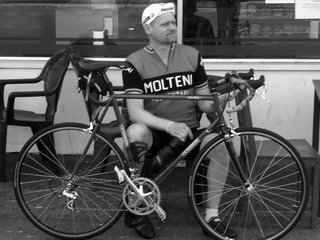A week ago, I was riding the Metro 372 from the U District up to my college in Bothell. It was the Monday of Spring Break. I was listening in on a gaggle of Nathan Hale High School students talk about a literature class. One was bragging that he had been a star in a recent “Socratic seminar” even though he had not read any of the material covered by the seminar. Another person said, “Well, you did read the first chapter ‘cause we read it together in class.” Another person chimed in, “Did you spark the novel?” The conversation devolved at that point to some pretty adolescent flyting until one student started talking about Mad Magazine. He offered an almost verbatim quote of a particular text in a recent volume and then an interpretation of why it was funny; his peers listened even though it wasn’t yet 8 AM. Then some one tossed in another pretty sophomoric comment and the insults flew.
Smart students with an unfortunate view of teachers: it seemed that they perceived teachers as authority figures almost completely unaware of how students thought about literature and how they read. In fact, the whole point of the literature class seemed to be fooling a teacher into believing that assignments had been read and that the student’s interpretation matched the teacher’s.
This strikes me as a tragic use of resources, of time and space. Sure there are “correct interpretations” and correct answers to math problems, but it’s not clear to me that a meaningful education can be gotten by fooling authorities into believing that one is correct. Interpretations and answers are the end result of a process that is, for most learners, more important than the end result. A professional engineer knows how to use numbers to model a situation; a writer knows how to decipher a text or situation. Neither puts a lot of weight on having gotten correct answers in school. Could be I’m taking a utopian position here. I suspect one can go a long way without knowing how to use fluently numbers and words. A Yale or Harvard MBA taken after fooling professors is still a Yale or Harvard MBA. Education is, at one level, a way to pile up social capital.
Guess that I am not really interested in the piling up of social capital in the absence of personal development. I ask students to develop their own readings and to document the process by which they came up with those readings (and rarely offer my own interpretations). Rather than asking them to be correct, I ask learners to be purposeful and conscientious; that is, I ask them to take what we do seriously and to take responsibility for doing it. No more; no less.
I find a great deal of joy and enjoyment in this practice (I expect to have “fun” in my classes this spring). But I’m the sort of person who took three degrees in “English” (and minored in math). Am I asking too much of my students? Am I failing to teach them the rules that will enable them to be “correct” and thereby accrue social capital.
Maybe, but I doubt it. On my experience, purposeful and conscientious students who enter just educational institutions end up being able to be correct enough to do what they want to do. Trying hard, of course, does not guarantee getting the correct answers. At times, learners discover that mastering one or another process or content area will cost a lot of time and energy. Confronting such a situation, a purposeful, conscientious learner makes a choice: she invests the time and energy or alters her goals. She doesn’t complain about having to make an investment.
Hmmmm, this is making me think more precisely about my obligations to this sort of learner. I have to provide access to processes and content and have to provide comprehensible feedback on performances. I’ll go after this line of thinking in another posting.
Wednesday, March 28, 2007
Subscribe to:
Posts (Atom)
